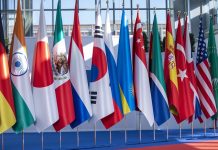Russian Deputy Foreign Minister Sergey Ryabkov stated in an interview with International Affairs magazine that the administrations of US President Joe Biden and former US President Donald Trump differ substantially in their methods and political style.
“[Between the administrations] there is a significant difference. They are opposites in many ways, but not in the sense that people perceive the priorities and interests of the United States differently. On the contrary, here is where the current and past [US administrations] intersect, but the technique, approaches, style, genre, and presentation are all different today “, he stressed.
According to Ryabkov, the previous administration’s “ultra-conservative pressure” gave place to “the holistic and ideological approach of safeguarding American interests, quite distinctive of the US Democratic Party.” The diplomat stated that the US made it plain during the Geneva conference that Moscow and Washington had different values.
“It wasn’t like this in the past,” the senior diplomat said, “but the point is the same: Moscow is regarded as a geopolitical adversary in many sectors, Moscow is seen as a cause of concern when it comes to America’s unconditional supremacy in the globe.”
He emphasized that it is too early to draw conclusions from actual contrasts in the policies of the Trump and Biden administrations. “This is why our senior officials and president have stated that we need some time before we can say if there have been positive advances in bilateral ties,” Ryabkov continued.
“There was nothing behind the occasionally good rhetoric from the Trump administration, other from the attempts to squeeze out as much as possible. Naturally, our opposition to this approach was unequivocal, and relations did not improve, but rather deteriorated.”
Putin and Biden met for the first time on June 16 in Geneva. The presidents emphasized in a joint statement that the sides want to initiate meaningful and aggressive bilateral engagement on strategic stability.
According to US Secretary of State Antony Blinken, the Geneva conference presented a chance for more fruitful cooperation in the field of weapons control.












